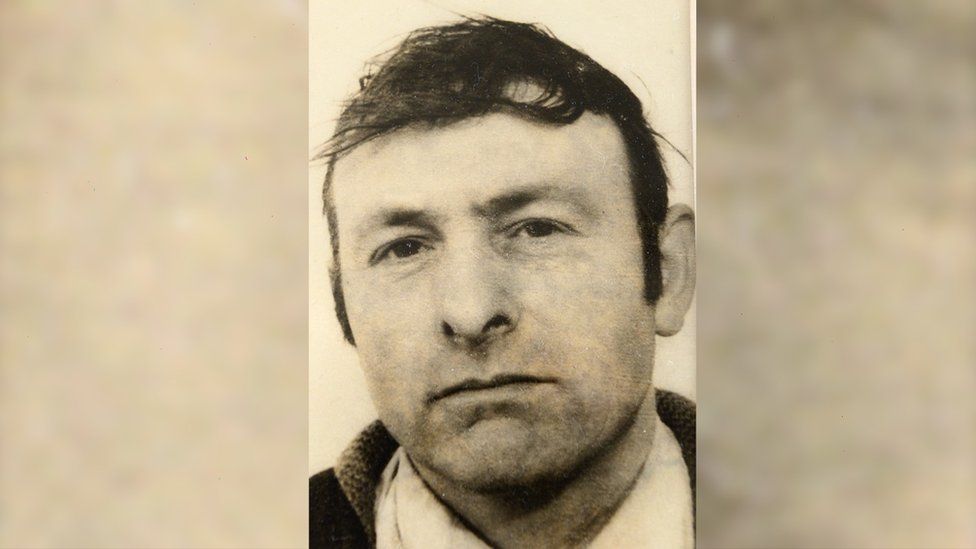15 minutes ago
About sharing
An Army veteran is to be charged with the murder of a man and the attempted murder of six others in Belfast during the Troubles more than 50 years ago.
Three other former soldiers will also face prosecution for attempted murder.
The move was announced by the Public Prosecution Service (PPS) after examining evidence submitted following a police investigation.
Due to the timing of the decisions, the cases are not affected by the Legacy Act.
From later in 2024, the Legacy Act will offer amnesties in Troubles cases.
A veteran referred to as Soldier F will face a charge of murdering Patrick McVeigh, 44, at Finaghy Road North in May 1972.
He will also be prosecuted for the attempted murder of four other people in the same incident.
Along with individuals referred to Soldiers B, C, and D he is also to be charged with the attempted murder of two people in a separate shooting at Slievegallon Drive in west Belfast, also in May 1972.
The individuals referred to as Soldier F and Soldier C are not the same individuals involved in any previous or on-going prosecution relating to events in Northern Ireland in 1972.
All the shootings involved a undercover Army unit called the Military Reaction Force (MRF), which operated in Belfast in the early 1970s.
The PPS said in a related case – the killing of 18-year-old Daniel Rooney at St James’ Road, west Belfast, in September 1972 – there was insufficient evidence to charge two former soldiers.
PPS assistant director Martin Hardy said all victims and families involved were informed of the decisions before they were made public.
He added: “Regardless of the differing outcomes in relation to each incident examined, we in the PPS recognise that this is a painful day for all victims and families involved and that they have waited a long time to reach this stage of the process.
“Where a decision to prosecute has been taken, I would emphasise that criminal proceedings will commence in due course and there should be no reporting, commentary or sharing of information which could in any way prejudice these proceedings.
“We will keep in touch with the relevant victims and families as these cases progress.
“Where a decision not to prosecute has been taken, I can assure victims and families involved that the prosecution team, which included an independent senior barrister, considered the available evidence thoroughly, independently and impartially.”The MRF was a small, secretive unit within the Army and consisted of about 40 undercover soldiers who patrolled west Belfast in unmarked cars.
It operated for about 18 months before it was disbanded in 1973.
Related Topics
5 September 2023
